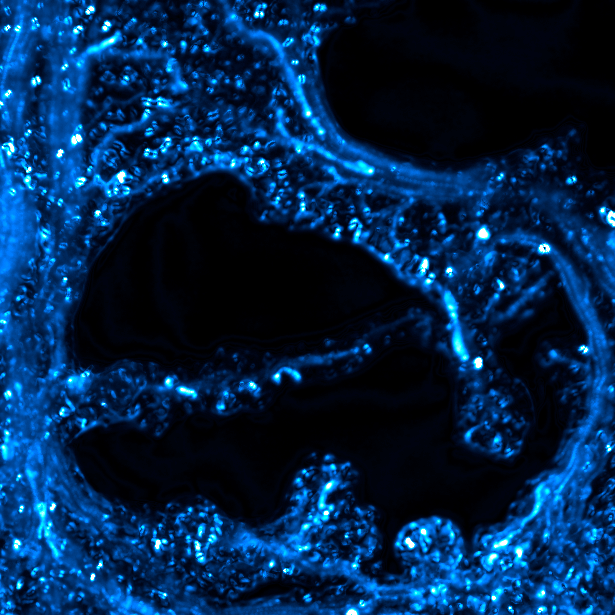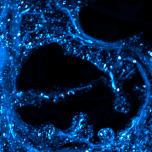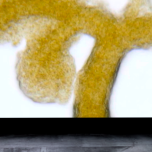
Global Slime Mould Migration
Silbersalz Institute


Information
Modelling climate change related migration patterns with a slime mould
Contact
claus.sly@proton.me
Project Type
Silbersalz Institute
Project Description
How can a non-human - a slime mould – embody and predict the future of
humanity?
As humans were and will be migrating in response the changing climate, it is only a
question how the current climate crisis will affect migration trajectories. How would a
slime mould redistribute the global population in response to the changing climate?
Which cities will become the major hubs of transit in this century?
To realise this a slime mould will model a two-dimensional heat map according to
Scheffer et al. 2020 as a live performance. Simultaneously there will be a realtime
video feed from microscopes of selected locations on the world map. The visible
fluid dynamics of the slime mould, as well as the details of the model will draw the
attention away from the global, towards local scales of migration and murmuration.
As the slime mould sheds light on our future, we are invited to go beyond
conventional ideas of computational modelling and media theory.
Project Status
In Development
Genre
Science
Length
variable
Link (Website)
Science Project
Project Description
In the heart of the ‘Blob’ (Physarum polycephalum), a
seemingly unassuming amoeba, Kaspar Wachinger, and
the Biologial Physics and Morphogenesis research group
unravel a network of genetic communication that defies
conventional understanding. Without a neuron in sight,
this single-celled giant showcases sophisticated decision-
making, memory retention, and anticipatory behaviors.
Through Microinjection of DNA dye into the Network
structure of the Amoeba, Kaspar’s study uncovers how
hundreds of millions of nuclei within the blob can
communicate and coodinate. New and exciting light
based methods will be developed and explored within the
proposed science and media project to communicate with
this surprising being.
The blob’s intricate world of self-organizing networks
nudges us towards a humbling revelation: intelligence, in
its myriad forms, is not a sole dominion of creatures with
brains. By shedding our anthropocentric lens, we’re
invited into a universe where every organism, no matter
how small, has a story to tell and a lesson to impart. In
embracing this broader perspective, we don’t just expand
our scientific horizons, but we cultivate a deeper
sympathy and appreciation for the myriad forms of
intelligence that share our world.
Scientist
Kaspar Wachinger
Profession / Position
Postgraduate Student
Institution
Technical University of Munich
Country
Germany
E-Mail Address
kaspar.wachinger@tum.de
Link (Website)
